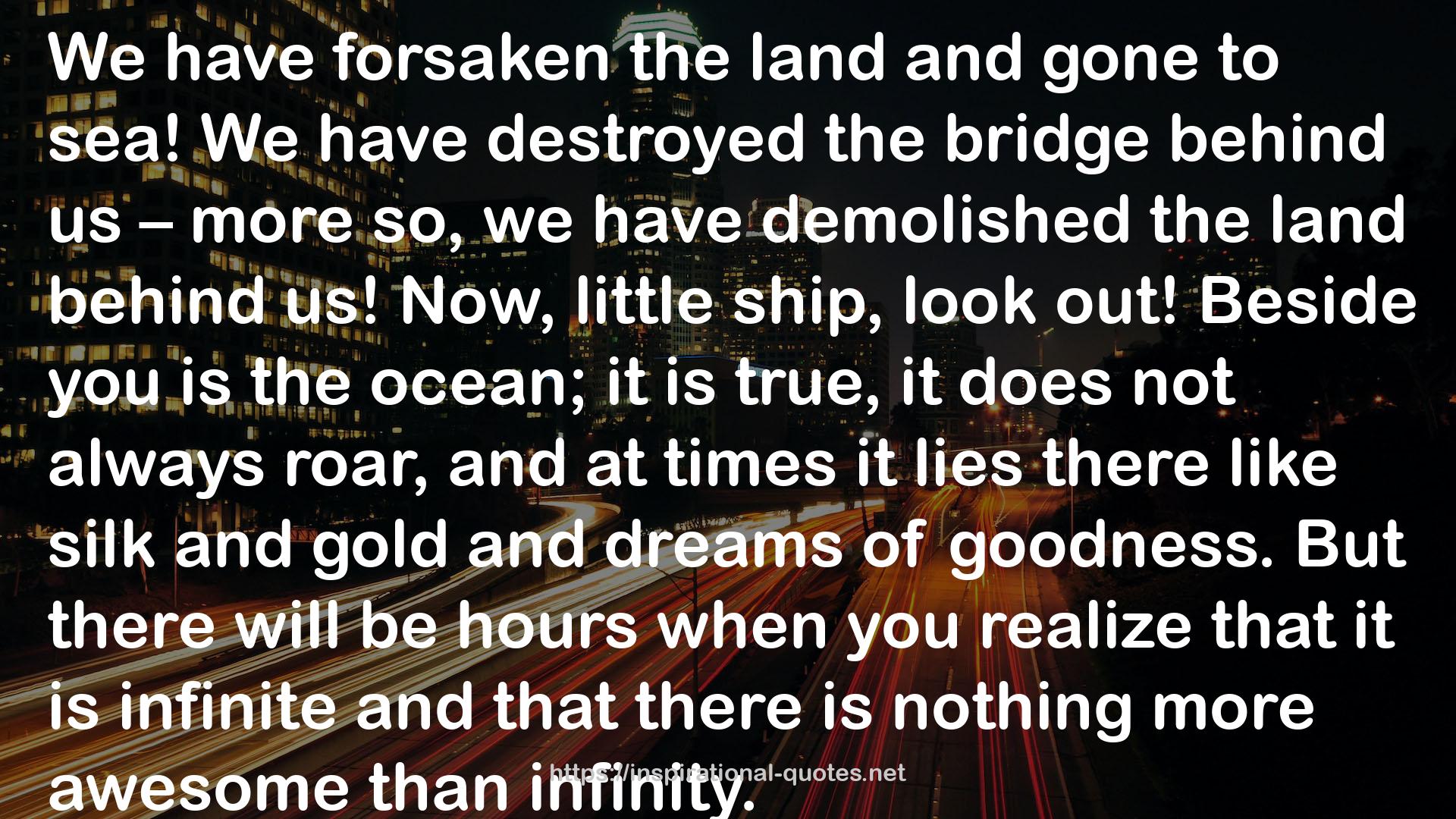76
" Haven't you heard of that madman who in the bright
morning lit a lantern and ran around the marketplace crying incessantly,
'I'm looking for God! l'm looking for God!' Since many of those who
did not believe in God were standing around together just then, he
caused great laughter. Has he been lost, then? asked one. Did he lose his
way like a child? asked another. Or is he hiding? Is he afraid of us? Has
he gone to sea? Emigrated? - Thus they shouted and laughed, one
interrupting the other. The madman jumped into their midst and
pierced them with his eyes. 'Where is God?' he cried; 'I'll tel1 you! We
have kil/ed him - you and I! Wc are all his murderers. But how did wc do
this? How were we able to drink up the sea? Who gave us the spange to
wipe away the entire horizon? What were we doing when we unchained
this earth from its sun? Where is it moving to now? Where are we
moving to? Away from all suns? Are wc not continually falling? And
backwards, sidewards, forwards, in all directions? Is there still an up and
a down? Aren't we straying as though through an infinite nothing? Isn't
empty space breathing at us? Hasn't it got colder? Isn't night and more
night coming again and again? Don't lanterns have to be lit in the
morning? Do we still hear nothing of the noise of the grave-diggers who
are burying God? Do we still smell nothing of the divine decomposition?
- Gods, too, decompose! God is dead! God remains dead! And we
have killed him! How can we console ourselves, the murderers of all
murderers. The holiest and the mightiest thing the world has ever
possessed has bled to death under our knives: who will wipe this blood
from us? With what water could we clean ourselves? What festivals of
atonement, what holy games will we have to invent for ourselves? Is the
magnitude of this deed not too great for us? Do we not ourselves have to
become gods merely to appear worthy of it? "
― Friedrich Nietzsche , The Gay Science
77
" Oh, these men of former times knew how to dream and did not find it necessary to go to sleep first. And we men of today still master this art all too well, despite all of our good will toward the day and staying awake. It is quite enough to love, to hate, to desire, simply to feel--and right away the spirit and power of the dream overcome us, and with our eyes open, coldly contemptuous of all danger, we climb up on the most hazardous paths to scale the roofs and spires of fantasy--without any sense of dizziness, as if we had been born to climb, we somnambulists of the day! We artists! We ignore what is natural. We are moonstruck and God-struck. We wander, still as death, unwearied, on heights that we do not see as heights but as plains, as our safety. "
― Friedrich Nietzsche , The Gay Science
79
" Work and boredom.- Looking for work in order to be paid:
in civilized countries today almost all men are at one in doing that. For all of them work is a means and not an end in itself. Hence they are not very refined in their choice of work, if only it pays well. But there are, if only rarely, men who would rather perish than work without any pleasure in their work. They are choosy, hard to satisfy, and do not care for ample rewards. if the work itself is not the reward of rewards. Artists and contemplative men all kinds belong· to this rare breed, but so do even those men of leisure who spend their lives hunting, traveling, or in love affairs and adventures. All of these desire work and misery if only it is associated with pleasure. and the hardest, most difficult work if necessary. Otherwise. their idleness is resolute. even if it speIls impoverishment, dishonor, and danger to life and limb. They do not fear boredom as much as work without pleasure; they actually require a lot of boredom if their work is to succeed. For thinkers and all sensitive spirits, boredom is that disagreeable "windless calm" of the soul that precedes a happy voyage and cheerful winds. They have to bear it and must wait for its effect on them. Precisely this is what lesser natures cannot achieve by any means. To ward off boredom at any cost is vulgar, no less than work without pleasure. Perhaps Asians are distinguished above Europeans by a capacity for longer, deeper calm; even their opiates have a slow effect and require patience, as opposed to the disgusting suddenness of the European poison, alcohol. "
― Friedrich Nietzsche , The Gay Science

